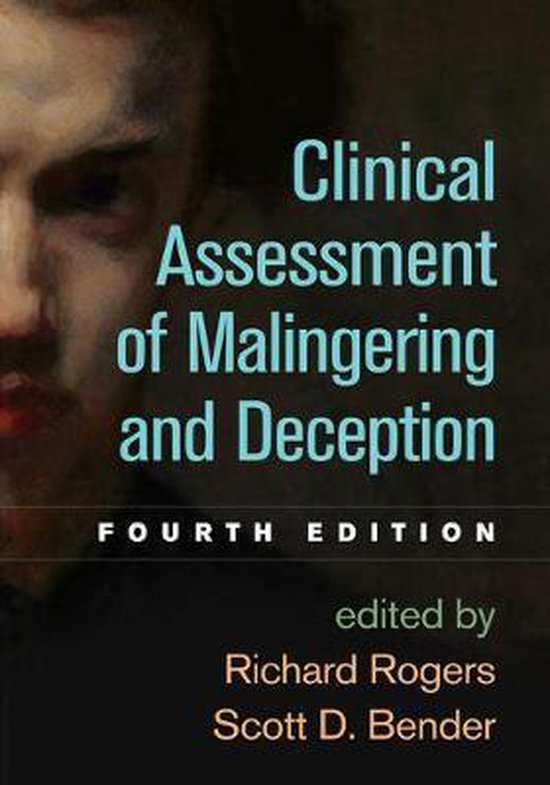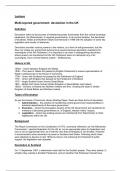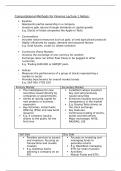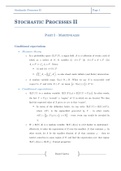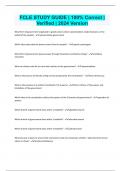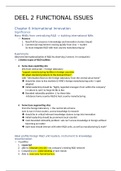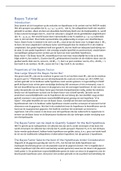Learning outcomes
1. Different forms of deception in clinical settings
2. Difference between faked and genuine syndrome
3. Methods allowing the assessment and detection of various forms of deception in
clinical settings
4. Approaches to the management and treatment of faked syndromes
5. Research approaches applied in this field
Challenging since you don’t know who is being assessed
6. Ethical and legal pitfalls related to deception in clinical settings
Topics covered in the course
Why is one taking on the role of faking a disorder?
- Factitious disorders
- Munchausen syndrome by proxy
- Malingering of cognitive dysfunctions (e.g., amnesia, attention disorders)
- Malingering of psychiatric disorders
- Validity testing in child and adolescent assessment
- Residual effects of feigning
- Polygraph
The exam
40 multiple-choice questions and 4 open questions
20 points in total for the open questions
40 points in total for multiple-choice questions
Thus, 60 points can be achieved
Take your laptop to the exam
Why is the course useful?
Deception in animals
Deception is fundamental to survival in the animal kingdom
E.g., feigning of death to avoid predators is common in many animal species or the adult
birds feign injury to draw predators away from their nest
Cases study
Frank William Abagnale jr. passed bad cheques worth more than 2.5 million dollars in 26
countries. “Catch me if you can” the movie.
Why is it so important in our work field?
- Most of the information we rely on is what patients tell us
The assumption of honesty, clinicians are trained to believe the patients
Often not aware of the potential for deception in the clinical setting
Not a lot of objective performance tests
- Some patients deliberately produce false or grossly exaggerated symptoms
To gain external incentives (malingering)
To assume the sick role (factitious disorders)
Common psychiatric disorders accompanied by deceptive behavior
E.g., personality disorders, eating disorders, substance abuse
We can’t always take patient reports for granted.
, - Substance abuse and dependence
Denial and other forms of deception in order to…
Minimize consequences of use
Ensure continued supply of the substance
- Eating disorders
Clinicians are aware that patients with anorexia (!!) and bulimia nervosa use
various common deceptive practices
Dishonesty about body weight or food intake
Hiding food
Secretive use of laxatives or diuretics
Body weight manipulation (e.g., ingesting water prior to weighing)
- Paraphilias
Sexual deviation or perversions with behaviors or sexual urges focusing on
unusual objects, activities, or situations
Minimize negative consequence, hence use lying and deception
Fetishism
Exhibitionism
Frotteurism
Voyeurism
Pedophilia
- Personality disorders
Common feature: difficulties with impulse control, including exaggeration or lying
Putting yourself in a better light to satisfy needs
In particular…
Antisocial personality disorder
Borderline personality disorder
Histrionic and narcissistic personality disorder
Thus, you cannot just assume honesty, two fault occur; facticity and malingering.
Factitious disorders and malingering
Factitious disorder: a psychiatric condition in which an individual presents with an illness
that is deliberately produced or falsified for the purpose of assuming the sick role
(Example of the child crying)
Malingering: the intentional production of false or grossly exaggerated physical or
psychological symptoms motivated by external incentive, such as, financial compensation.
(Example of the woman in the court room)
The external incentive is something outside yourself.
The difference between the two
, Differential diagnosis
The differentiation starts by deciding whether it is a factitious disorder or malingering, or a
real medical or mental condition (other than factitious disorder)
Be careful with this differentiation! Do not make early assumptions, one might have somatic
symptoms.
Somatic symptom and related disorders
- Prominence of somatic symptoms associated with significant distress and
impairment
- Different forms e.g., conversion disorder and illness anxiety disorder
Illness anxiety disorder: preoccupation with fears of having a serious illness
Conversion disorder: sensory or motor symptoms without any physiological
cause
Determining existence of an external incentive can be difficult
(Malingerers usually do not trumpet their external incentives)
Voluntariness and intentionality are more likely dimensions rather than discrete entities
What about the clinicians
No monopoly on distortion of patients
“Surgeon faces trial for lying about his experience in keyhole technique.”
Gert Postel:
- German imposter
- Successfully applied as a medical doctor several times without ever having received
medical education
Physicians are prepared to lie in the interest of their patients e.g., to secure insurance
payment.
, “Physicians’ attitudes toward using deception to resolve difficult ethical problems.”
Lecture 2 factitious disorders
Overview
- Definition and history
- Classification
- Pseudologia fantastica
- Differential diagnosis and comorbid disorders
- Prevalence & mortality/morbidity
- Causes
- Assessment/detection of FD
- Treatment and prognosis
- Victimization of others
Definition
FD refers to the psychiatric condition in which and individual presents with an illness that is
deliberately produced or falsified, usually for the purpose of assuming the sick role.
(Malingering is not a psychiatric disorder, this is an important difference).
The motivations, assuming the sick role, are difficult to prove, unless the patient himself
indicates this.
Case report
Bethany (28) had claimed that someone threw acid in her face, after saying ‘hey there pretty
girl’. Doubt came after a press conference; her wounds were self-inflicted.
History
FD = presumably present throughout human history
- Early Egypt poetry showed the need of people taking care of you and satisfaction
when people worry and care for you occurred ca. 1200 B.C.
- In the 1800s, the British physician Gavin:
Description how some soldiers and seamen pretended illness to excite
compassion or interest.
- In the 1900s, Menninger
“Polysurgical” or “doctor addiction”
Addiction to being examined, asked, and cared about
- Beginning of modern history of FD
Asher (1951): case reports of patients
Who habitually migrate from hospital to hospital
Seeking admission through feigned symptoms
While embellishing their personal history
Munchausen syndrome (after Baron Munchausen)
o This syndrome is a severe form of FD.
o People really go from hospital to hospital (doctor addiction)
o It is a minority of the FD cases
o Patients who have a chronic variant of FD with predominantly physical
signs and symptoms.
Classification

